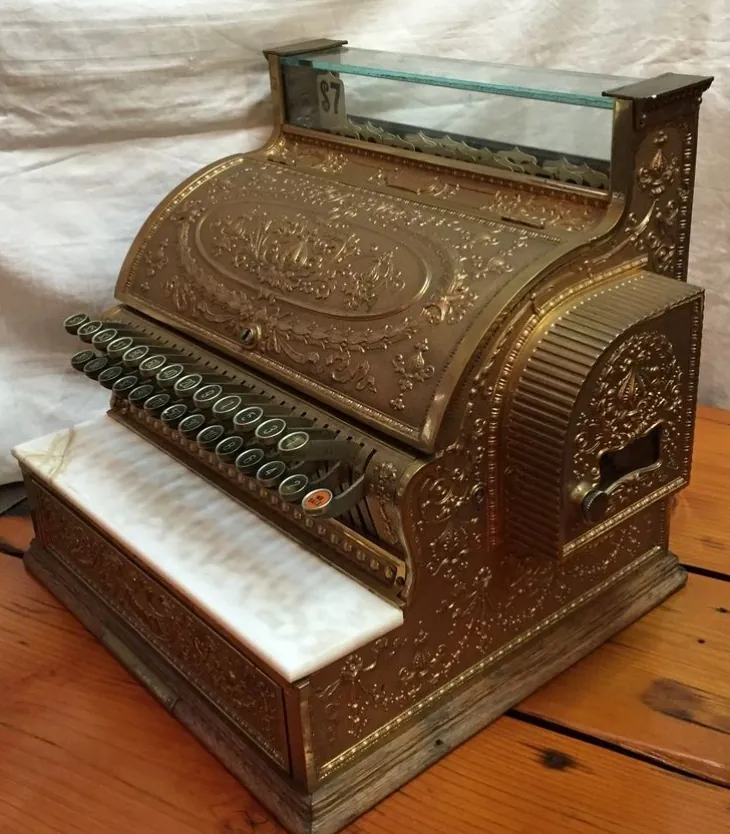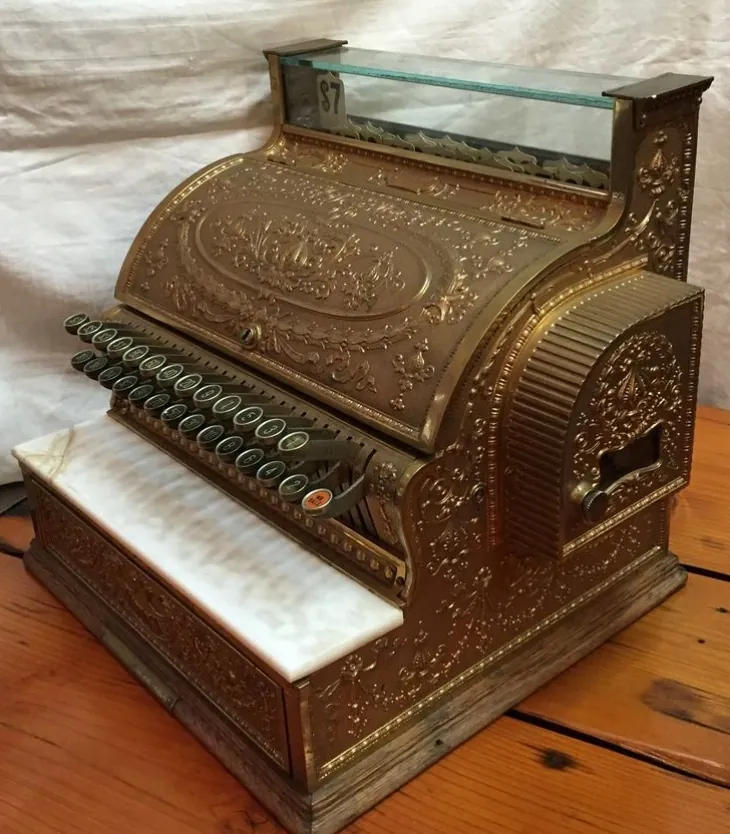Do you remember the days when cash registers reigned supreme in every store? Well, those days are long gone. Today, old, bulky cash registers are being replaced with POS systems and iPads. But you’re sure to still find one of these heirlooms at your favorite cash-only craft cocktail bar.
Take a trip down memory lane and explore the fascinating history of the cash register. Believe it or not, these machines started out as simple addition machines. Previously, cashiers had to manually ring a bell for each transaction, and when a common key was pressed, the bell would ring to alert the manager of the sale. Ah, those were the good old days!

Curious how these strange prices came about? Well, according to Bill Bryson, it all started with a need for change. By charging an odd amount, such as 49 cents or 99 cents (or 45 cents or 95 cents when nickels were more common than pennies), the cashier had to open the register to receive the change. It didn’t happen. This way you can announce the sale to your buyers. Isn’t that sneaky?
Back in the late 19th century, a man named James Ritty invented the first mechanical cash register. However, running two businesses proved overwhelming for Ritty, so he sold his interests to Jacob H. Eckert, a china and glassware salesman.
Eckert then founded the National Manufacturing Company. After John H. Patterson took over in 1884, the company’s importance increased. Patterson saw the potential in cash registers and grew the business into the National Cash Register Company. He made significant improvements to the cash register by adding a roll of paper, creating a journal for internal accounting and a receipt for external accounting.
The introduction of receipts ensures that transactions are accurately recorded and provides greater protection against fraud.
Today we live in a digital age and cash registers are a thing of the past. POS systems and iPads streamline your shopping experience, making transactions faster and more efficient. But it’s always interesting to look back at the humble beginnings of these machines that revolutionized the way we do business.
So, the next time you come across an old cash register, take a moment to appreciate its history. It’s a reminder of how far we’ve come and how technology continues to shape our world.


